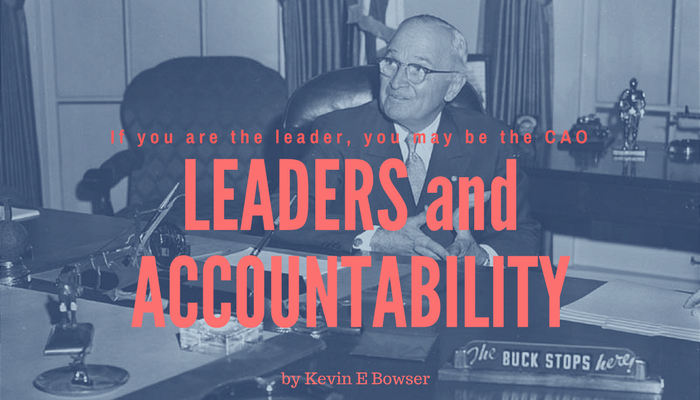What is a “CAO?” That would be a “Chief Accountability Officer.” And you probably won’t find one in the C-suite of your organization. But there probably ought to be one. In fact, accountability is one of the key functions of a leader when the leader has other leaders who report to them from an administrative perspective.
A History Lesson
For those of you who are lovers of history, you will know or remember that President Harry S Truman had a sign on his Oval Office desk that read: “The Buck Stops Here.” It meant that he accepted responsibility and that he was accountable for all the decisions of his administration. He accepted them for his entire administration. President Truman’s stand still exists in a few organizations today but, unfortunately, it is the exception rather than the rule.
More than Personal Accountability
But my point today is not about accepting personal responsibility. The point I want to make today is that if YOU are a leader, you have a responsibility to hold those around you accountable for their actions or inactions. I am fairly sure that President Truman didn’t let his Cabinet and the rest of his administration run wild and then accept the responsibility and any blame for their actions. That would not be good leadership. He realized that he was ultimately accountable. But, I am sure that he worked with his Cabinet Secretaries and the rest of his administration and that he had expectations of his administration.
The Chief Accountability Officer
What is my role as a leader when it comes to accountability of those who I lead? First of all, accountability for your team does not happen in a vacuum. There are many factors that must be present in order for accountability to be the norm rather than the exception.
Click here to read the rest of the article »











